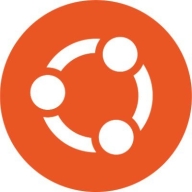

Ubuntu Linux and Google ChromeOS Flex compete in the tech ecosystem, targeting different user needs. Ubuntu Linux appeals to developers and tech enthusiasts, while ChromeOS Flex is preferred for its ease of use and cloud integration, particularly in educational and business environments.
Features: Ubuntu Linux offers a rich software repository, high customizability, and robust security framework, attracting developers and IT professionals. Google ChromeOS Flex excels in cloud integration, featuring automatic updates and strong security measures, making it ideal for web-focused applications in educational and corporate settings.
Ease of Deployment and Customer Service: Google ChromeOS Flex provides a straightforward deployment process with seamless, automatic updates and integrated customer support within the Google ecosystem. Ubuntu Linux, while more complex to deploy due to its customization options, benefits from extensive community-driven support and documentation, catering to tech-savvy users.
Pricing and ROI: Ubuntu Linux offers a cost-effective solution with zero licensing fees and potential for significant ROI through its open-source nature and community support. Google ChromeOS Flex, though associated with costs for advanced features and integrations, offers a strong ROI for organizations leveraging cloud-first strategies and seeking minimal maintenance.
| Product | Market Share (%) |
|---|---|
| Ubuntu Linux | 11.5% |
| Google ChromeOS Flex | 0.9% |
| Other | 87.6% |

| Company Size | Count |
|---|---|
| Small Business | 84 |
| Midsize Enterprise | 21 |
| Large Enterprise | 52 |
ChromeOS Flex is a free, cloud-based operating system that revitalizes existing Windows, Mac, or Linux devices, providing a fast and responsive experience without the need for powerful hardware. It features a simple, intuitive interface ideal for users comfortable with web browsers, and emphasizes security through sandboxing and automatic updates. With the Google Admin console, organizations can easily manage ChromeOS Flex devices, making it a practical choice for extending the life of older hardware and reducing e-waste. While it lacks the built-in security chip and access to Android apps found in standard ChromeOS devices, ChromeOS Flex remains a robust and eco-friendly solution.
Ubuntu Linux is an open-source platform known for its robust security, ease of use, and rapid performance. Its lightweight design and comprehensive support system make it ideal for diverse IT environments, providing seamless management and scalability options.
Ubuntu Linux stands out with its open-source nature that allows extensive customization and access to a broad range of free software. It is widely praised for its stability and a vast package repository offering regular updates, enhancing its usefulness across different sectors. The platform is equipped with a lightweight design and excellent community support, making it scalable and easy to manage. While it could improve in areas like Windows software compatibility and user interface refinement, its benefits in enterprise management and development projects are undeniable. Improved documentation, better hardware integration, and enhanced third-party application compatibility are additional focal points to consider.
What are the key features of Ubuntu Linux?
What benefits should be considered from reviews?
Ubuntu Linux is prominently implemented in industries for tasks such as server management, application deployment, and software development. Its resource efficiency and open-source tool compatibility make it a favorite for programming, research, and cybersecurity. Companies frequently use it for web hosting, cloud services, and managing multi-user enterprise solutions.
We monitor all Operating Systems (OS) for Business reviews to prevent fraudulent reviews and keep review quality high. We do not post reviews by company employees or direct competitors. We validate each review for authenticity via cross-reference with LinkedIn, and personal follow-up with the reviewer when necessary.